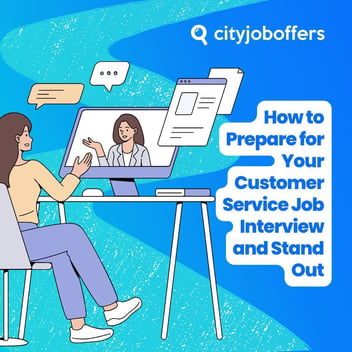What questions should you ask recruiters in a job interview?
.png)
How to impress recruiters with these essential questions
The questions you ask an interviewer can really impress them and make them want to hire you. It’s crucial that you take the opportunity at the end of a job interview to ask questions. This is another chance for you to find out more about the role.
It also allows the interviewer to see how motivated you are and what really interests you about the job.
So what questions should you ask in a job interview?
1. What are your expectations for the first 90 days in this role?
Asking this question can get you a sense of what's expected of you, and how soon. You'll also be able to gauge whether your company is generally interested in seeing things through or if they're looking for someone who can jump in on day one and get results immediately.
2. How do you measure and define success?
How will my performance be evaluated? This will allow you to get a clear picture of how your performance will be evaluated and what that process will look like.
These are some examples of key questions that you could ask:
-
- What is the criteria for success?
- How often will evaluations be? Every few months, or a quick check-in every few weeks?
- What are the key performance indicators (KPIs) that will determine whether or not you are meeting goals?
- What are the key goals in this role? How does achieving these goals affect the team and overall company?
3. Is this a new position, or is it replacing someone else?
It’s important to know if you are the first person to take up the role or if someone was there before you.
If it’s a new position, meaning the job has never existed before, you should ask:
-
- What are the main responsibilities of this role?
If it is replacing someone else, ask:
-
- How many people were involved with this role previously?
- Why is this role now open?
- How long has it been vacant?
These questions will let you hear the specific responsibilities that the position would entail. It could also give you an idea of how big your potential workload might be.
4. What are some challenges that the person who takes on this job will face?
This question shows a prospective employer that you're thoughtful and self-aware enough to consider your own shortcomings, but also interested in learning from others' experiences.
The best answer here will be specific to your role and company, but they should give you an idea of what you'll be getting into if hired. If they say that there will not be any challenges, this could be a big red flag and they may not be telling the full story.
5. How would you describe the culture of the company?
Make sure that you understand what kind of atmosphere your potential new workplace has before accepting any offer—even one for an entry-level position or internship. Culture can make or break a job; it's well worth asking about before accepting an offer.
It’s important to know if the work environment is more casual or formal. If it is a small company, it may be that there is no formal structure and everyone just does their own thing.
This information can help you figure out if you would fit and enjoy the culture of the company.
6. Can you tell me about the team I'd be working with?
It is perfectly natural to want to know who you will be working with as well as what their personalities are like. You need to be sure that you are comfortable working with them and that they will be able to help you achieve your goals.
The best way for the interviewer to answer this question is by describing their team members' strengths and weaknesses and explaining how each person's strengths can complement others'.
7. What's the next step?
You've landed an interview, which is a major accomplishment. You can expect the hiring manager to be impressed with your credentials, but it's important to keep in mind that they're still evaluating whether you're the right fit for their company.
Asking about the next step in the recruitment process lets them know that you're invested and interested in doing more than just getting through this one exchange of information; it shows them that you want to make sure both sides are on board with moving forward together.
It also lets them know that you aren't afraid of being transparent about what kind of job search strategy works best for you.
Asking these questions will help you to better evaluate whether you're a good fit for a potential company and whether the company's a good fit for you.
Want to find the best way to explain CV gaps in an interview? Find out how to make sure career breaks don’t get in the way of landing the job! Learn more →



.jpg?width=352&name=Did%20you%20know%20these%206%20ways%20to%20use%20your%20social%20media%20to%20get%20a%20job%20(Instagram%20Post).jpg)